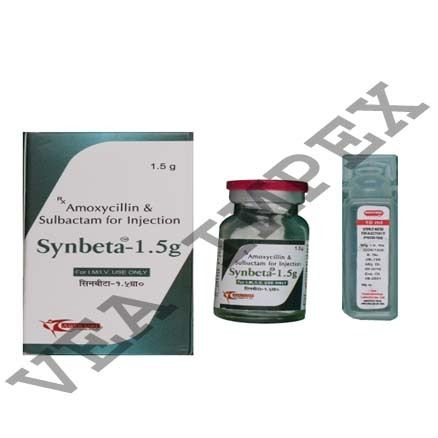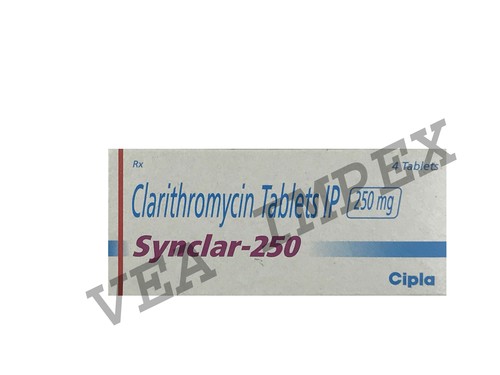
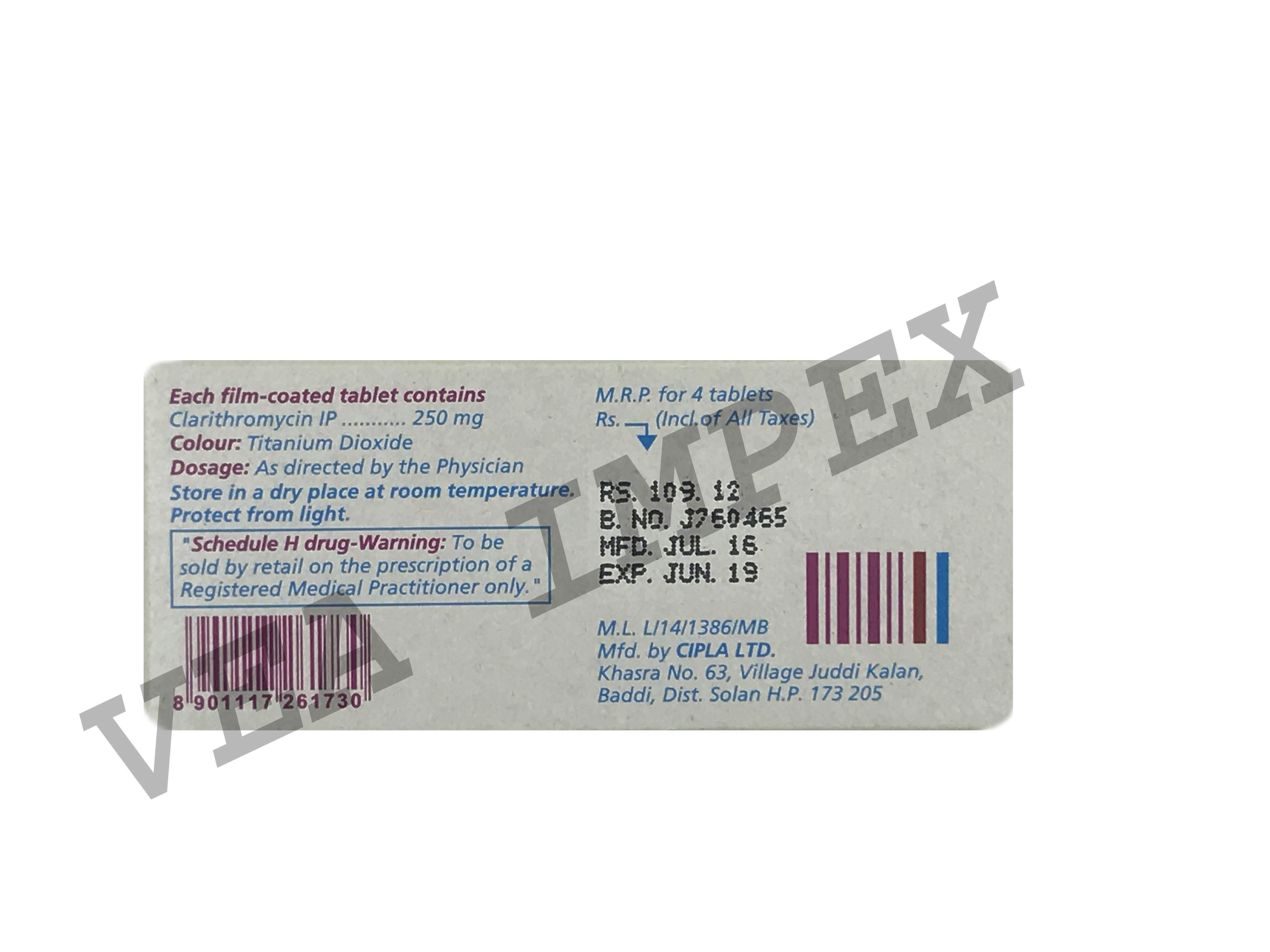
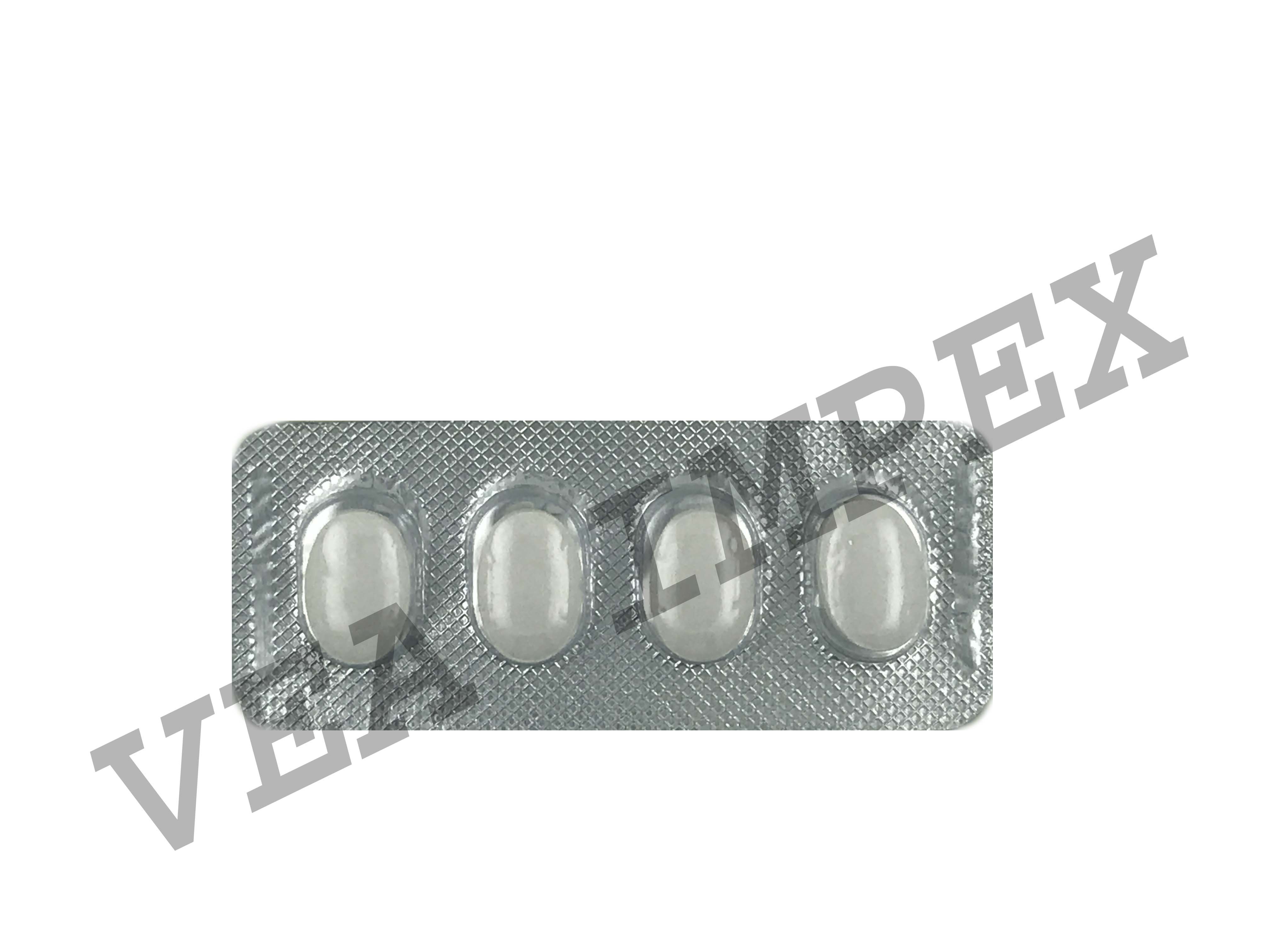
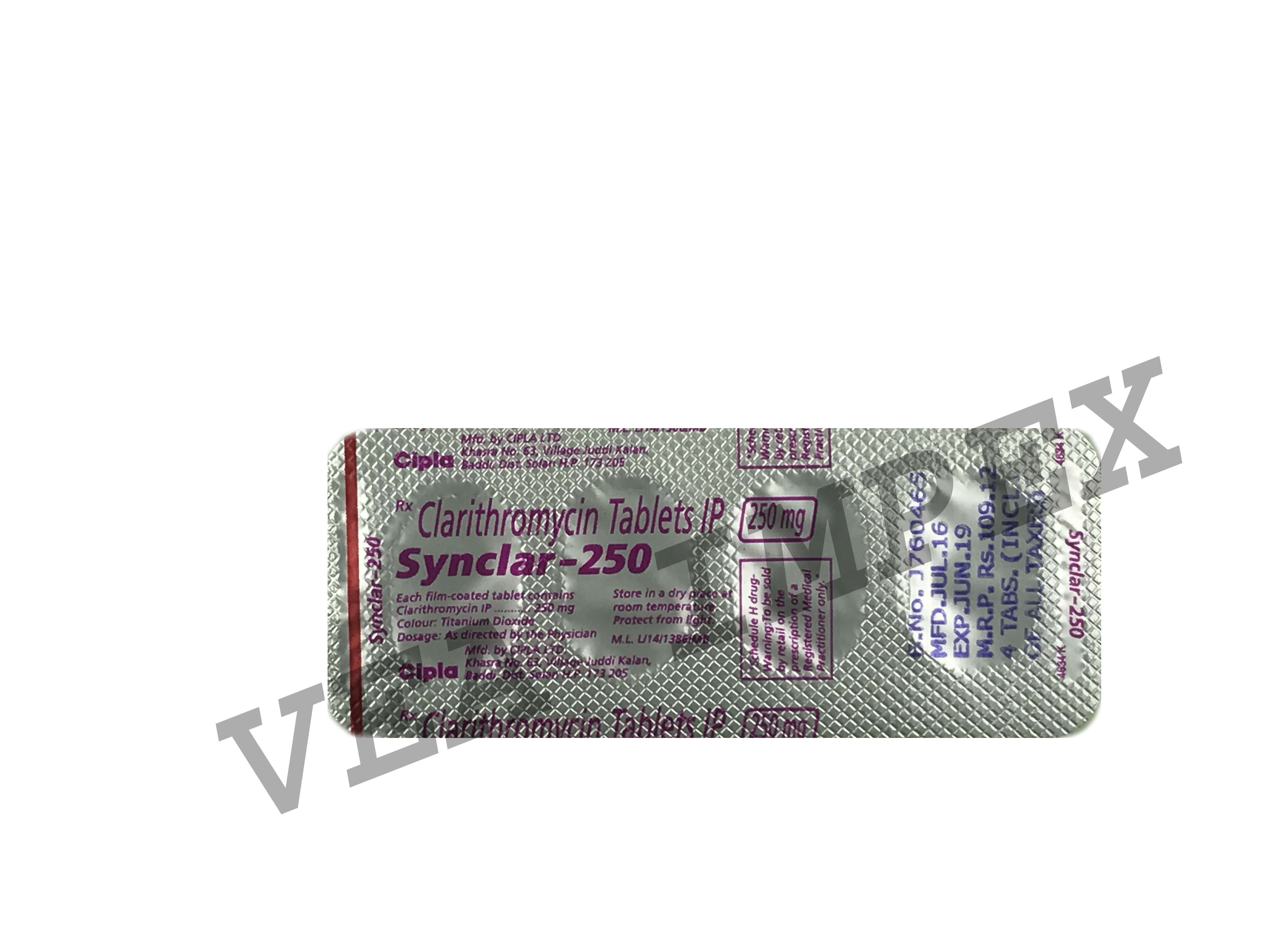
Synclar 250
Product Details:
- Drug Type General Medicines
- Physical Form Tablets
- Function Anti-Bacterial
- Dosage 250 mg
- Click to view more
Synclar 250 Price And Quantity
- 5000-1000 Piece
- 10.00 - 100.00 USD ($)/Piece
- 109.12 USD ($)/Piece
Synclar 250 Product Specifications
- Tablets
- Anti-Bacterial
- General Medicines
- 250 mg
Synclar 250 Trade Information
- Cash in Advance (CID) Cheque Cash Advance (CA)
- 10000 Piece Per Week
- 7-15 Days
- All India
Product Description
Product name : Synclar 250
Generic Name : Clarithromycin Tablets
Manufacturer : Cipla
A macrolide antibiotic, Synclar 250 MG Tablet is used in the treatment of infections caused by bacteria. The infections may include pneumonia, respiratory tract infections, lyme disease, strep throat, skin infections, H. pylori infection, among others. It is categorised as an broad-spectrum antibiotic which protects against mycoplasma, chlamydia and mycobacteria and other gram-negative and gram-positive bacteria. It works by decreasing protein production of these bacteria. It is available in the form of tablets, pills and liquids.
Common side effects of Synclar 250 MG Tablet may include diarrhoea, stomach pain, nausea, abnormal taste in mouth, headache and vomiting. In mild cases, these effects go away within a few days or a couple of weeks. Severe allergic reactions are very rare.
Medicines like cisapride, primozide, ergotamine and lovastain cause life-threatening interactions with Synclar 250 MG Tablet and therefore should not be taken without consulting a doctor.Synclar 250 MG Tablet should not be used during pregnancy except in cases where no alternative medication is available as it may potentially cause harm to the foetus. This drug enters breast milk in mild quantities which usually does not affect the infant. However, let your doctor know if you are breastfeeding.
The amount your doctor prescribes and how long you take it depend on your age, medical condition and its severity and your reaction to the first dose.
Uses of Synclar 250 MG Tablet
- Tonsilitis/Pharyngitis
Synclar 250 MG Tablet is used in the treatment of Tonsilitis/Pharyngitis caused by Streptococcus pneumoniae, Haemophillus influenzae and some fungal infections.
- Bronchitis
Synclar 250 MG Tablet is used in the treatment of Bronchitis which is an inflammation in lungs caused by Streptococcus pneumoniae, Haemophilus influenzae, and some Mycoplasma pneumoniae.
- Pneumonia
Synclar 250 MG Tablet is used in the treatment of Pneumonia which is a common type of lung infection caused by Streptococcus pneumoniae and Haemophilus influenzae.

Price:
- 50
- 100
- 200
- 250
- 500
- 1000+

 English
English Spanish
Spanish French
French German
German Italian
Italian Chinese (Simplified)
Chinese (Simplified) Japanese
Japanese Korean
Korean Arabic
Arabic Portuguese
Portuguese





